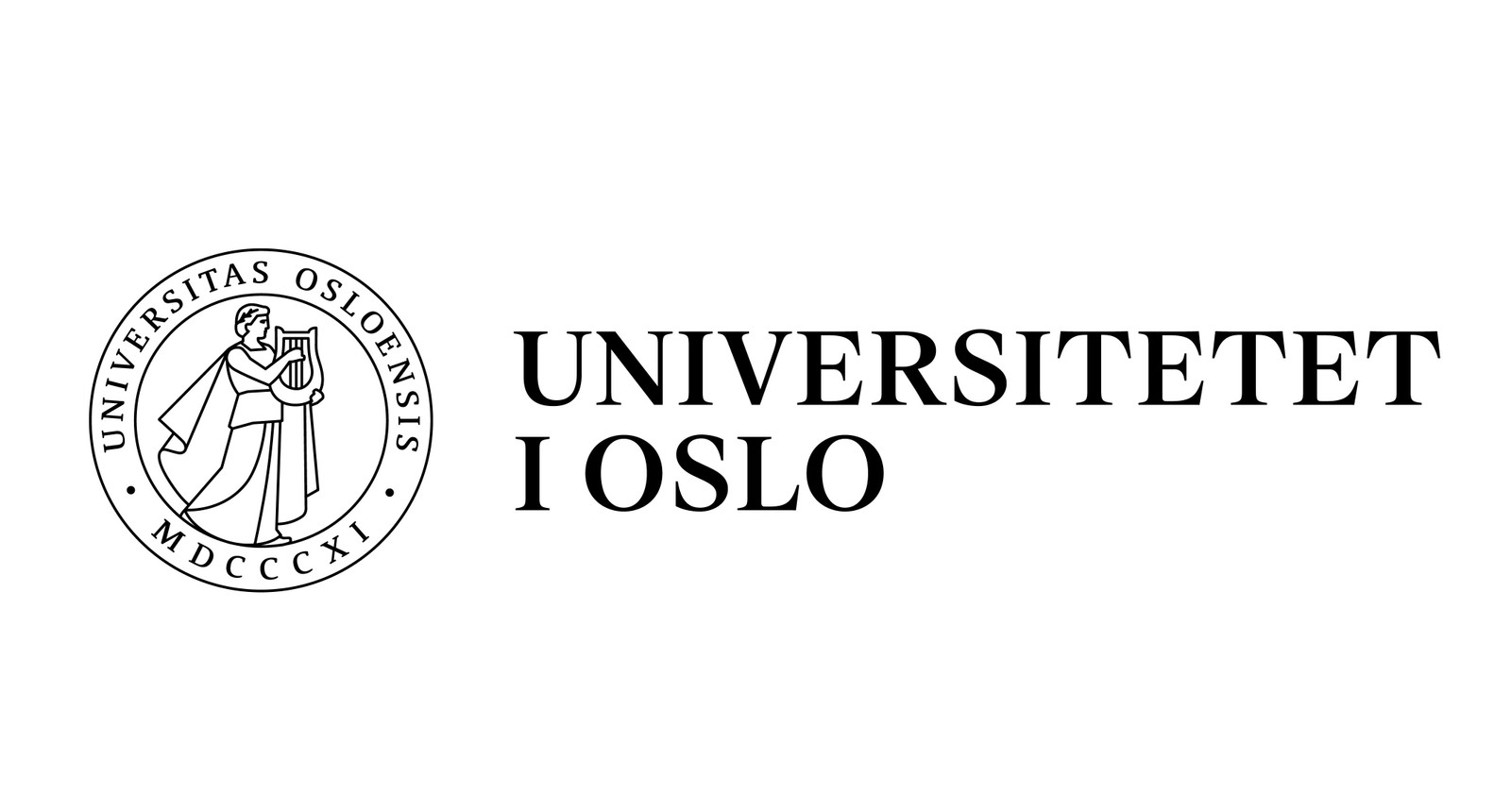Postdoctoral fellow in the field of Digital Criminology
- Arbeidsgiver
- Universitetet i Oslo
- Stillingstittel
- Postdoctoral fellow
- Frist
- 15.06.2021
- Ansettelsesform
- Vikariat
1 Post-Doctoral Research Fellowship in Digital Criminology is available to undertake research as part of the project ?The changing relationships between digital technologies, DNA and evidence" (Digital DNA). The project is funded by the European Research Council. The candidate will work closely together with Mareile Kaufmann at the Department of Criminology and Sociology of Law.
The period of appointment runs for three or four years. The preferred period of appointment is four years with teaching duties constituting 25 % of the overall workload. A four year fellowship requires that the candidate can contribute to the current teaching needs of the Faculty of Law and that pedagogical base competences are acquired as part of the 25% teaching duties.
More about the position
Digital DNA studies the changing relationships between digital technologies, DNA and evidence. It focuses on three developments in specific: (1) Hardware: It investigates how smaller and more mobile hardware influences the production of DNA evidence, and how DNA is used as hardware in computing. (2) Databases and analytic instruments: It studies how DNA databases and their algorithmic analysis influence the production of DNA evidence, and to what extent digital databases and algorithms are associated with evidence-based reasoning. (3) Information per se: It discusses how the ability to alter DNA influences the production of forensic evidence, and how DNA influences the concept of digital data.
The project has strong empirical components. In order to contribute to these, the candidate must have training in qualitative methods, as well as basic competences in sociological research on technology. Science and Technology Studies will be an important framework for studying these developments.
Together with Kaufmann, the candidate will work on developments (1) and (2) with a focus on the influence of DNA and evidence-based reasoning on data practices and computation technologies. Under (1) the candidate would study processes and scientific cultures of DNA-computing and other forms of bio-computing. This is completed with (2) an analysis of the scientific status of data, analytic tools and evidence as anchored in the natural sciences and the philosophy of science. All studies take place in the UK and Norway. The candidate is not expected to have in-depth knowledge about specific technologies and data practices from before. However, through genealogical analyses, interviews and fieldwork the candidate shall develop an understanding of how DNA-computing works and how the enduring scientific status of digital data practices can be explained.
The candidate will get the chance to build an international network. In the course of the project, the candidate will have the opportunity to meet key scholars in this field, who are part of the project's Advisory Board.
The parts of the Digital DNA project description relevant to this position can be accessed here (https://www.jus.uio.no/ikrs/english/people/aca/mareilek/misc/excerpt-from-the-project-digital-dna-pd.pdf). Interested candidates are strongly advised to consult these before writing their project description.
Qualification requirements and other qualities
- Applicants must hold a degree equivalent to a Norwegian doctoral degree (PhD) in criminology or other relevant social science background.
- The doctoral dissertation must have been submitted for evaluation by the closing date. Appointment is dependent on the public defense of the doctoral thesis being approved.
- The candidate must be qualified to work theoretically and empirically in the described project.
- Applicants must submit a project description of 5-10 pages explaining how they would tackle their research task in the given time period. The candidate must have training in qualitative methods, as well as basic competences in sociological research on technology.
- The project language is English and the applicants should have an excellent command of the English language, written and spoken. A good command of a Scandinavian language is also an advantage, though not a condition.
We offer
- Salary 535 200 - 597 000 NOK per annum depending on qualifications (position code 1352)
- Academically stimulating working environment
- Pension arrangements in the Norwegian Public Service Pension Fund
- Welfare arrangements
How to apply
The application must include:
- A cover letter describing the applicant's qualifications and motivation for the position.
- Curriculum Vitae with grades listed (with a list of education, positions, teaching experience, administrative experience and other qualifying activities).
- Complete list of publications.
- Up to five previous academic works that the applicant wishes to be considered. If work is written by several authors, the division of work between them must be documented with the co-author's declaration.
- A project description of 5-10 pages, including a description of the theoretical background, the aims, methodologies with suggestions for informants or entry points for case studies, and reflections about potential ethical challenges. The proposal must clearly demonstrate how the research will contribute towards the case studies conducted in (1) and (2). The applicant should present a publication strategy for the research done within the project.
- Copies of educational certificates (PhD and MA). Foreign diplomas must be provided in the original language as well as in an English translation. Foreign applicants are advised to attach an explanation of their university grading system.
- Names and contact details for at least two reference persons.
Please note that all documents must be in English or a Scandinavian language.
The application with attachments must be delivered in our electronic recruiting system, please follow the link ?apply for this job".
The tentative starting date is fall 2021.
Evaluation of the applicant
- It is an asset, but not a requirement that the candidate knows web-crawling techniques. In the evaluation of candidates, emphasis will be placed on the candidate's academic achievements, previous relevant publications, the project description, and the applicant's professional and personal qualifications, particularly in relation to their ability to perform the proposed project within the allotted time.
- Short-listed applicants will be invited for an interview with the University of Oslo, personally or through electronic means.
- The candidates are evaluated by a hiring committee, which ranks the candidates based on the criteria indicated above and conducts interviews with short-listed candidates. In a few cases a dedicated interview committee will be formed.
- The faculty's hiring commission will take a final decision about the hiring of the candidate.
Formal regulations
Please see the guidelines (https://lovdata.no/dokument/SF/forskrift/2006-01-31-102) and regulations (https://www.uio.no/english/about/regulations/personnel/academic/guidelines-appointment-postdoc-researcher.html) for appointments to Postdoctoral fellowships at the University of Oslo. No one can be appointed for more than one Postdoctoral Fellow period at the University of Oslo.
According to the Norwegian Freedom and Information Act (Offentleglova) information about the applicant may be included in the public applicant list, also in cases where the applicant has requested non-disclosure.
The University of Oslo aims for its employees to reflect the diversity of the population to the greatest degree possible. The University of Oslo has a personnel policy objective of achieving a balanced gender composition and to recruit people with an immigrant background. We encourage qualified applicants with disabilities to apply for the position. The University of Oslo will adapt the workplace to suit employees with disabilities.
The University of Oslo has an agreement (https://www.uio.no/english/for-employees/employment/work-results/agreement-rights-to-work-results.html) for all employees, aiming to secure rights to research results.
Contact information
For questions concerning content: Project leader Mareile Kaufmann, e post: Mareile.kaufmann@jus.uio.no
For administrative questions: HR-officer Siri Martenson
Om arbeidsgiveren
The University of Oslo is Norway?s oldest and highest ranked educational and research institution, with 28 000 students and 7000 employees. With its broad range of academic disciplines and internationally recognised research communities, UiO is an important contributor to society.
The Department of Criminology and Sociology of Law is situated at the Faculty of Law. The Department is Norway's only department for research and education in Criminology and Sociology of Law. Research, teaching and dissemination activities within both fields are at the highest international level. The Department has about 30 employees and 500 students.
- Sektor
- Offentlig
- Sted
- Kristian Augustsgate 17, 0130 Oslo
- Bransje
- Forskning, utdanning og vitenskap,
- Offentlig administrasjon,
- Museer, gallerier og kulturminne
- Stillingsfunksjon
- Forskning/Stipendiat/Postdoktor

